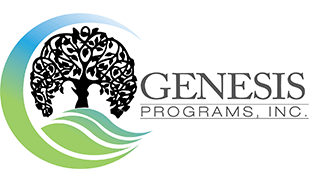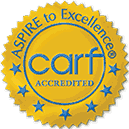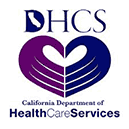Intensive Outpatient Program (IOP)

Intensive Outpatient Program Ventura CA
Genesis Programs Intensive Outpatient Program Ventura CA is committed to excellence in the treatment of substance use disorder by recognizing it as arguably the most serious health problem in our country today. We do not treat alcoholism or addiction as merely ineffective coping responses or secondary diagnoses to psychiatric disorders. We treat substance use disorder as a primary illness with its own set of symptoms and recommended course of treatment.
Our program is a mixture of education, individual counseling, group therapy, and family counseling. We provide a foundation of knowledge and support for our participants and family members. We believe that it is essential to treat the whole family system, helping everyone to gain understanding of the impact addiction has on the family.
We do this in an outpatient setting, giving our participants the advantage of practical application of basic recovery concepts in the actual environment in which they live. We provide a high level of both support and accountability to ensure successful outcomes.
Intensive Outpatient Program Ventura CA
As outpatient specialist since 1993, we have a proven track record demonstrating that a majority of people struggling with substance abuse do not need to be separated from their families or their jobs for one to three months for treatment to be effective. Our vast alumni network is proof positive that outpatient treatment works for the majority of people.
The Genesis Intensive Outpatient Program Ventura CA is an individualized program of variable intensity and is provided by an interdisciplinary team. The program is designed to maximize the therapy experience by offering decreasing levels of care across a continuum of treatment. This is accomplished through a series of phases which decrease in intensity.
Outpatient services shall be provided on two different levels of care: Day Treatment (Partial Hospitalization) and Intensive Outpatient Program Ventura CA. Level of care, as well as duration of stay and frequency are all based off an initial clinical assessment and ongoing treatment development. Following completion of primary treatment, Continuing Care is provided through Genesis Aftercare Program, which is offered weekly at no additional cost and recommended for a minimum of one year.
The target population is composed of substance abusing adult persons of both sexes, ages 18 and older, whose physical and emotional condition do not prevent their full participation in the program. The primary focus of the outpatient program is reinforcing the participant’s ability to change behavior in a setting outside the structure of a residential treatment program. In residential treatment, participants are introduced to basic recovery principles. In the Genesis Intensive Outpatient Program, you focus on the practical application of these principles.
The outpatient setting and group formation is used to foster the attainment of individual goals and active participation of participants. Interacting with professional and non-professional staff and with other participants is encouraged to help develop independent functioning, decision making and learning of new skills.
Substance Use Disorder (substance abuse, chemical dependency, alcoholism) is a primary, progressive, potentially fatal and chronic disease that adversely affects an individual’s wellbeing. The disease has serious negative consequences for the individual, family and significant others. The etiology of the disease reflects a complex interaction of emotional, behavioral, social, genetic and biological factors. The disease is incurable but highly treatable.
Due to the insidious progression of the disease, individuals and their families or significant others frequently exhibit observable dysfunction in their emotional, physical, social, spiritual and psychological well-being. In response to these needs, the Genesis Program provides an individualized, structured, continuing program of recovery to aid the individual in achieving and maintaining abstinence.
The goals of the Intensive Outpatient Program Ventura CA are:
- To achieve and maintain abstinence
- To increase understanding of the disease and recovery process of chemical dependency.
- To identify and reduce emotional and behavioral obstacles to recovery, including denial mechanisms.
- To introduce participant and family to 12-step support groups.
- To improve interpersonal relationships (family, work, social, etc.).
- To increase participant and family self-esteem.
Treatment delivery is guided by a person-centered philosophy which provides participants with an opportunity to develop a sense of self wherein they can realize how their attitudes, feelings and behavior are being negatively affected and make an effort to find their true positive potential. In this technique, counseling staff creates a comfortable, non-judgmental environment by demonstrating congruence (genuineness), empathy, and unconditional positive regard toward our participants while using a non-directive approach. This aids our participants in finding their own solutions to their problems.
Two primary goals of a person-centered philosophy are increased self-esteem and greater openness to experience. Some of the related changes that this form of therapy seeks to foster in participants include closer agreement between the participant’s idealized and actual selves; better self-understanding; lower levels of defensiveness, guilt, and insecurity; more positive and comfortable relationships with others; and an increased capacity to experience and express feelings at the moment they occur.
Successful treatment demands the efforts of an interdisciplinary team which includes certified counselors, physicians, consulting psychologists, family and continuing care counselors. Treatment also takes into consideration the results of input from the participant and family/significant others. The 12-Step program of recovery and other self-help support groups is emphasized throughout the treatment process for the individual and their family and friends.
Recovery is a gradual process and is not defined by abstinence alone, improvement in other significant life areas is a true measurement of success and a vital importance in appraising the course of rehabilitation.
Although virtually all seeking treatment for substance misuse, abuse, or addiction enter outpatient treatment under some sort of duress, the decision however, to participate and embrace the programs attributes are always voluntary. Genesis Programs makes every effort to provide services that accommodate each individuals needs, notwithstanding symptoms of physical or mental disorders which might interfere with treatment, must be stable and under the care of a physician. Conditions requiring medication that is mood altering must be on a taper and monitored by the prescribing physician prior to admission in the program.
Let us answer your questions about our Intensive Outpatient Program Ventura CA. Call us now. Ventura: (805) 650-3094
Intensive Outpatient Program Ventura CA Goals and Objectives
GOAL 1: To provide high quality participant care designed to promote each participant’s optimal level of functioning.
Objectives:
- To conduct comprehensive medical, chemical use, emotional, spiritual, behavioral, social, recreational, educational/vocational assessments, psychological screening when indicated;
- To determine the problems which must be addressed in a definitive, individualized plan of treatment;
- To assist each participant in breaking destructive relationships with mood-altering substances;
- To minimize discharges against medical advice and recidivist re-admissions;
- To review under- and over-utilization and length of stay issues to assure that the most cost-effective treatment is provided to each participant according to need.
GOAL 2: To promote interaction and cooperation among services, programs and disciplines so that creative therapeutic forces are utilized in formulating individualized treatment plans for all participants.
Objectives:
- To assist each participant and family member/significant other to reclaim or develop alternative problem-solving methods and skills to cope with problems of daily living without the use of mood-altering chemicals;
- To educate participants and family members/significant others about the dynamics of chemical dependency;
- To work with each participant in developing appropriate goals for treatment and Continuing Care and assuming responsibility for progress toward those goals;
- To evaluate the effectiveness of participant treatment through routine monitoring and evaluation of the quality and appropriateness of participant care and resolution of problems identified.
GOAL 3: To interface effectively with medical staff, health care providers and referral sources in the community to promote an effective continuum of care.
Objectives:
- To conduct sessions, when requested, between participant and employer to ease the participant’s return to work and enhance performance;
- To introduce participants and family members to community-based self-help fellowships;
- To provide community education and prevention seminars and workshops;
- To assist each participant in maintaining the gains made while in treatment through active participation in Continuing Care Groups and Alumni Services and through follow-up evaluations.
Clinical Program Services
- Medical Evaluation and Treatment – A licensed, credentialed physician reviews a comprehensive medical history completed by each participant admitted to The Genesis Program. Problems associated with substance use are evaluated as well as the need for medical attention for other health care problems that may affect the participant’s ability to achieve and/or maintain abstinence from mood-altering chemicals. Participants who are assessed to be in need of detoxification are referred.
- Counseling Services – A qualified counseling staff provides planned, consistent clinical program services five days a week, in a supportive and stable therapeutic milieu. The services encompass participant, family and continuing care programs. Counseling staff performs comprehensive clinical assessments addressing each participant’s emotional, behavioral, social, educational/vocational, spiritual, family activities/leisure, and Continuing Care problems and needs.
- Treatment Modalities
- Group Counseling – A homogeneous and/or heterogeneous open-ended process group which addresses the specific clinical problems of the participant identified in the comprehensive clinical assessments. Such groups provide a therapeutically controlled, risk-free environment in which the participant is supported in identifying, presenting and addressing his/her clinical problems as well as in responding to other participants’ issues. The group encourages participants to test new behaviors and attempt new methods of expression in order to challenge defeating attitudes and enhance problem-solving skills.
- Multi-Family Counseling – A task oriented supportive treatment process which deals with individualized project assignments to be completed by the participant and family members relative to salient aspects of living in an atmosphere of chemical dependency.
- Family Counseling – A group process in which the clinician focuses on modifying maladaptive behaviors in the family and promoting positive problem-solving to restore equilibrium to the family unit. The clinician aids families and couples in identifying and resolving defeating problem behaviors which interfere with effective living and in directing them in exercises to enhance their problem-solving process.
- Individual Counseling – A process in which the clinician focuses upon specific attitude problems the participant is having in understanding, accepting or addressing substance use disorder. It is designed to help maintain or restore the individual to a higher level of functioning while at the same time improving the individual’s concept of self. The clinician provides, as appropriate, possible courses of action to identify, address or resolve a specific problem. The goal is for the participant to develop and increase an understanding of his or her behavior and the impact of such behavior on health, work, social, or family life. Increased understanding and insight into the behavior is sought in order that the participant can learn new and more adaptive coping and problem-solving skills. Individual counseling sessions focus on developing the participant’s treatment plan, reviewing progress and planning for the next level of care.
- Spiritual Counseling – A group process in which a clinician assists participants in addressing spiritual beliefs and related attitudes that may impact upon the participant’s ability to achieve and/or maintain abstinence.
- Focus Groups – Educationally oriented presentations whose goals are to promote understanding of the disease and recovery process of chemical dependency and to develop lifestyle skills necessary for maintaining a recovery program.
- 12-Step Meetings and Other Self-Help Support Groups – A process to introduce and educate participants to the purpose, intent and necessity of self-help fellowship involvement for achieving and maintaining sobriety. This includes but is not limited to Alcoholics Anonymous, Narcotics Anonymous, Celebrate Recovery, SMART Recovery, and Rational Recovery.
- Therapeutic Environment or Milieu – The outpatient setting and group formation is used to foster the attainment of individual goals and active participation of participants. Interacting with professional and non-professional staff and with other participants is encouraged to help develop independent functioning, decision making and learning of new skills.
- Family Program – The Family Program is designed to give the family or significant others an understanding of the disease concept of substance use disorders and to introduce the family to appropriate communication skills and relationships. The families participate in a series of groups to reduce negative feelings and to learn problem-solving techniques. The Family Program also addresses the difficulties the family may encounter after the participant returns home, and how to have a supportive and harmonious family unit. Conjoint, group and individual sessions are provided as appropriate.
- Continuing Care Program – The Genesis Continuing Care Program is designed to assist participants in early recovery by maximizing the benefits gained during the initial outpatient phase of treatment. This is accomplished through a series of educational/process and peer support groups reinforcing the Genesis philosophy that recovery is an ongoing process. The Continuing Care group offers a smooth transition from the primary treatment setting to a stronger relationship with their community and sober support network.
Call now for more information on our Intensive Outpatient Program Ventura CA: (805) 650-3094
Call now for your free assessment!
(805) 650-3094
Genesis Programs, Inc. is CARF accredited and certified through the Department of Healthcare Services (DHCS) as outpatient providers for substance Use Disorder rehabilitation treatment services. Certification #560032DP Exp. 11/30/2023


